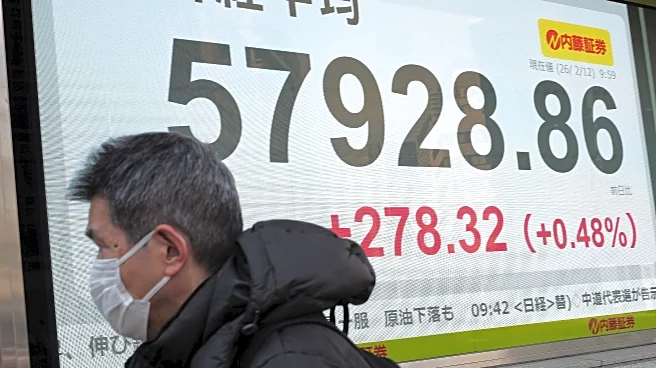Rapid Read • 8 min read
BMW is making a significant investment of $1.7 billion in its Spartanburg plant to transition from internal combustion engines to electric vehicles (EV) and hydrogen fuel cell production by 2030. This move is part of BMW's broader strategy to secure its position in the EV market through localized manufacturing and modular battery technology. The Spartanburg facility will be complemented by a $700 million battery plant co-developed with CATL and Envision AESC, which will produce Gen6 cylindrical batteries with higher energy density and lower carbon footprints. BMW's Neue Klasse platform, set to debut in 2026, aims to offer an 800 km range, faster charging, and AI-integrated architecture, reducing costs significantly compared to previous generations.
AD
BMW's investment in EV and hydrogen production is crucial as the automotive industry shifts towards sustainable transportation solutions. By focusing on localized manufacturing and modular battery technology, BMW aims to mitigate risks associated with global supply chain disruptions and enhance cost efficiency. This strategic move positions BMW to compete effectively in the EV market, especially in regions with underdeveloped charging infrastructure. The company's approach contrasts with Tesla's scale-driven strategy, which has faced challenges such as innovation fatigue and market share erosion. BMW's diversified drivetrain offerings allow it to outperform rivals in various markets, potentially leading to increased market penetration and long-term dominance.
BMW plans to launch its Neue Klasse platform in 2026, which will underpin 40 new or updated models by 2027. This platform is designed to adapt to regional market needs through partnerships, ensuring competitiveness in diverse markets. BMW's focus on AI-driven quality control and energy-efficient production methods will continue to enhance its cost efficiency and sustainability efforts. As the EV race evolves, BMW's strategic execution rooted in adaptability and fiscal prudence may prove to be key in maintaining its competitive edge.
BMW's electrification strategy highlights the importance of balancing technological ambition with risk mitigation. By standardizing battery cell design and leveraging AI-driven efficiency, BMW is positioned to respond swiftly to market shifts. This approach not only addresses performance and sustainability concerns but also aligns with regulatory trends and consumer demand for sustainable transportation. BMW's strategy offers a compelling risk-reward profile for investors, projecting significant free cash flow driven by cost discipline and a diversified EV portfolio.
AD
More Stories You Might Enjoy













